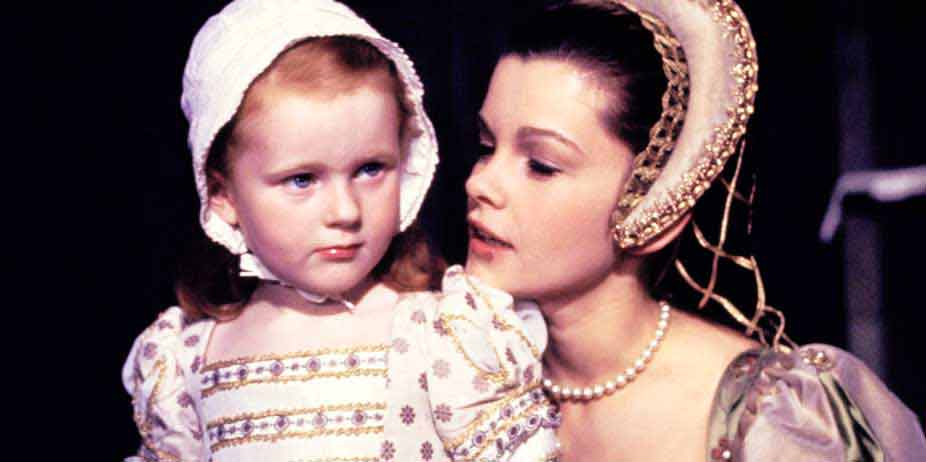
Anne of the Thousand Days (1969)
The reign of King Henry VIII was one of the most scandalous, brutal, and bloody in English history, as he used his power to corrupt those around him and serve his own lecherous ends. Our fascination with the monarch and his unfortunate wives have spurred a number of films about his life and loves. Anne of the Thousand Days is one of the most highly-praised of them.
Discontent with his marriage to an older woman, Katharine of Aragon (Irene Papas), who has borne him no sons but only a daughter and is now past the age of childbearing, King Henry VIII (Richard Burton) has allowed his wandering eye to stray onto the beautiful and spirited Anne Boleyn (Geneviève Bujold). Not yet eighteen and freshly returned from the French court, she is the apple of her parents' eye and is engaged to a handsome young man from the cardinal's household. When Cardinal Wolsey (Anthony Quayle) comes to ask permission from the king to grant their marriage, Henry refuses, since he intends to make Anne his mistress. The young woman has no intention of turning out an illegitimate child like her older sister, and refuses.
For months, Henry tries to wear down Anne's defenses but she holds firm, loathing him for sending her fiancé away and ultimately encouraging him to marry another woman. Only when she becomes instilled at court does she begin to warm to the older man who professes such undying love for her, but his lust and her determination will tear the empire apart, forcing Henry to turn against the church in order to sanction their adulterous marriage. The result is a gorgeously costumed, beautifully acted glimpse into one of the most tumultuous love affairs in history. It is played out in such a way that it is believable but also very well presented, with enough charm to sustain its macabre conclusions. It has been awhile since I have read about Ann Boleyn but I remember enough to state that this film does well with most of its conclusions and historical basis. It does skimp on minor trivial details but clings to the facts closely enough so that we're given a fair representation of what their relationship was like.
The actress playing Anne was ideal, both innocent in feature and wise enough to know her limitations. She plays well off Burton, who is stuck with such an ultimately dislikable fellow but still manages to make you care a little for him. One of the more memorable performances for me was that of Quayle, whose corrupt bishop has a more tender, empathetic side only revealed when his power has been demolished. A good deal of church corruption also plays out in the film, since the cardinal has no problem assisting the king in finding young maidens to fill his bed. There's even one asleep in his. Henry justifies his adulterous behavior with the excuse that he is the God-anointed sovereign, and has the rash impudence to become the head of the new Protestant church, created only so that he might wed Anne. He piously speaks numerous times about daily prayers and his belief that it is God's will that he divorce Katherine. He demands that the bishops and monks in the area choose between Rome and his authority. It's an interesting film and the last half hour in particular is its crowning achievement, revolving around Anne's brutal and ultimately true predictions for her daughter.
Sexual Content
There is no actual sexual content, but much discussion about it. Anne
reveals that she is not a virgin to her fiancé, and outright refuses on numerous
occasions to "bed" the king. There is some innuendo when Henry asks one of his
friends how best to seduce a maid (virgin). Someone inquires why the king does
not just take her by force, if he wants her that badly. Anne and Henry have many
quarrels about it. She gives in a few months before their marriage, and they are
shown cuddling in bed together afterward. Henry uses a weak claim of incest as
an excuse to have his marriage to Katherine annulled, since she was his
brother's wife. Anne is later accused of having an affair with her brother.
Another man is paid off to lie in court that he had an affair with the queen.
Language:
None.
Violence:
There are several implied beheadings, and two instances
of Henry slapping Anne across the face (once knocking her to the floor).
Other:
Drinking.
